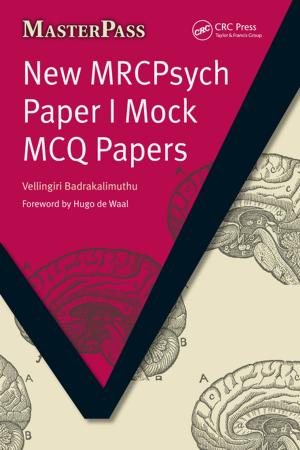Ecological Interface Design
Nonfiction, Science & Nature, Technology, Industrial Health & Safety, Engineering, Industrial| Author: | Catherine M. Burns, John Hajdukiewicz | ISBN: | 9781351988643 |
| Publisher: | CRC Press | Publication: | July 12, 2017 |
| Imprint: | CRC Press | Language: | English |
| Author: | Catherine M. Burns, John Hajdukiewicz |
| ISBN: | 9781351988643 |
| Publisher: | CRC Press |
| Publication: | July 12, 2017 |
| Imprint: | CRC Press |
| Language: | English |
Ecological Interface Design delivers the techniques and examples that provide you with a foundation to succeed in designing advanced display graphics. The opening chapters introduce the "art" of interface design by exposing the analytical methods behind designs, the most common graphical forms, and how these methods and forms are pulled together to create a complete design.
The book then incorporates case studies that further emphasize techniques and results. Each example exemplifies a solution to a certain part of the EID puzzle. Some of the examples demonstrate the analysis phase, while others apply more scrutiny to graphical design. Each is unique, allowing allowing you to use them in the development of your own designs.
The volume concludes with an analysis that connects ecological interface design with other common interface design methods, enabling you to better understand how to combine approaches in the creation of design solutions.
Ecological Interface Design delivers the techniques and examples that provide you with a foundation to succeed in designing advanced display graphics. The opening chapters introduce the "art" of interface design by exposing the analytical methods behind designs, the most common graphical forms, and how these methods and forms are pulled together to create a complete design.
The book then incorporates case studies that further emphasize techniques and results. Each example exemplifies a solution to a certain part of the EID puzzle. Some of the examples demonstrate the analysis phase, while others apply more scrutiny to graphical design. Each is unique, allowing allowing you to use them in the development of your own designs.
The volume concludes with an analysis that connects ecological interface design with other common interface design methods, enabling you to better understand how to combine approaches in the creation of design solutions.















